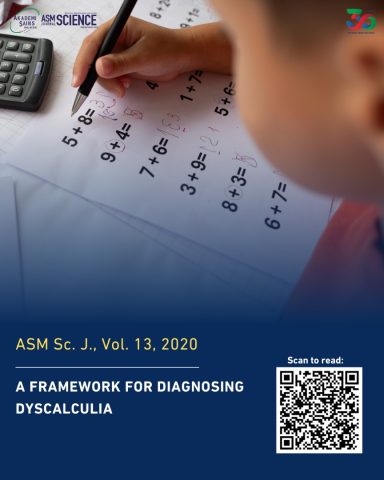
Inspiring Voices of Women in STEM
May 21, 2025
e-estidotmy: Inspirasi Saintis Muda Wanita – Ts Dr Aeslina Abdul Kadir
May 21, 2025Students who are struggling with basic numerical skills, may be caused by dyscalculia.
This article outlines the development of mathematical items through perception, operation, and reason, and the utilisation of Malaysian Dyscalculia Instrument (MDI) among primary school students.
The Malaysian Dyscalculia Instrument (MDI) is a standardised tool designed to identify primary school students (ages 7–9) who struggle with basic numeracy due to dyscalculia. The framework is grounded in the concept of numerosity—our innate sense of quantity, and theories of cognitive development in mathematical thinking.
The MDI consists of four constructs and seven tests: simple reaction time, short-term memory, number sense, matching items, dot enumeration, number comparison, and arithmetic. These tests examine how children perceive numbers, process them, and apply reasoning. For example, tasks include comparing dot patterns, recalling visual information, distinguishing larger numbers, and solving simple arithmetic problems.
Results showed that this framework reliably measures basic numeracy skills and identifies difficulties linked to dyscalculia. Importantly, it highlights how different cognitive processes—perception, operation, and reasoning—interact to shape mathematical understanding.
The study contributes both theoretically and practically by offering a valid, context-specific instrument for Malaysian students. It provides educators, psychologists, and policymakers with a tool to better detect and support children with dyscalculia, paving the way for more effective interventions in education and special needs support.
Visit the ASM Science Journal website to read the full article.

